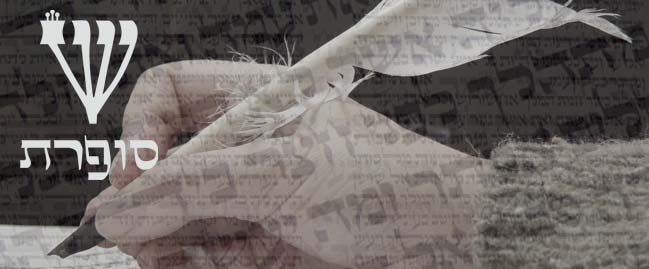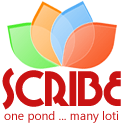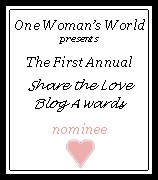SMALL HANDS = NO ROOM FOR PEACE
בס"ד
20 Tamuz
More violence over Shabbes. I'm beginning to feel anxiety for the safety of my friends in Israel, especially now that the Hezbollah rockets are landing further & further south. May Ha-Shem, Ha-Rachaman the Compassionate One, bring a quick & peaceful resolution to this crisis Ameyn.
This piece was written for the Shabbes that just passed & is cross - posted at Radical Torah.
Rabbi Chayim David Halevy, z"l, the former Chief Sefardi Rabbi of Tel Aviv, was a Kabbalist who wrote many volumes of wise commentary.
In R’ Halevy’s 9 Volume series of She’elot and Teshuvot (Halakhic questions & answers) entitled Aseh L’chah Rav in Vol. 5 he begins the book with a section entitled “Kontrus Torah Min Hashamaim.” In that section beginning on page 58 you will find the piece on the big and small letters.
In the Torah portion we read tomorrow, there are two odd letters: a small Yud in the name “Pinchas”, & a broken Vav in the word “shalom”. English translations are based on those of Fox.
Be-midbar Parshat Pinchas/Numbers 25:11 reads:
יא פִּינְחָס בֶּן-אֶלְעָזָר בֶּן-אַהֲרֹן הַכֹּהֵן, הֵשִׁיב אֶת-חֲמָתִי מֵעַל בְּנֵי-יִשְׂרָאֵל, בְּקַנְאוֹ אֶת-קִנְאָתִי, בְּתוֹכָם; וְלֹא-כִלִּיתִי אֶת-בְּנֵי-יִשְׂרָאֵל, בְּקִנְאָתִי.
“Pinchas ben-Elazar ben-Aharon hakoheyn heyshiv et-chamati mey’al b’ney-yisra’eyl b’qano et-qinati b’tokham v’lo-khiliti et-b’ney yisra’eyl b’qinati:”
“Pinchas son of Elazar son of Aharon the G@D-helper has turned My venomous-anger from the Children of Israel in his being-zealous with My jealousy in their midst, so that I did not finish off the Children of Israel in My jealousy:”
So, why a small Yud? R’ Halevy tells us that whenever we encounter a small letter in our writings, that this indicates a person in the narrative has missed the mark. That s/he made a less than ideal choice. The diminutive letter is there to draw our attention to it & to ask questions. Ultimately, to learn.
What is Yud? Well, it’s a yad, a hand. & by the act of religiously motivated murder that Pinchas committed just before this verse, we see that his yad, his hand - his agency - is diminished.
Although his zealous killing stopped the plagues, he had a better option which he did not take. It’s our job to figure that out: how to be zealous for G@d in an appropriate way.
Be-midbar parshat Pinchas/Numbers 25:12 reads:
יב לָכֵן, אֱמֹר: הִנְנִי נֹתֵן לוֹ אֶת-בְּרִיתִי, שָׁלוֹם.
“Lakheyn emor hin’ni noteyn lo et-briti shalom:”
“Therefore say: Here, I give to him My covenant of peace:”
Pinchas was rewarded by G@D for his devotion with a promise of peace and the plague we had been dying of disappeared. The Vav in the word “shalom” is broken. So why the word “shalom”? Why not the word “briti”, for example? And why is the Vav broken and not some other letter?
In English, what does the word “peace” mean? It means “quiet”, “calm”, “an absence of war”, in other words it indicates a lack of disorder. There is no conflict. “Peace” features nothingness.
In Hebrew, what does the word “shalom” mean? The shoresh/root of “shalom” is Shin-Lamed-Mem Sofit and this combination of letters gives us words like “rest”, “reward”, “completion”, “accomplishment”, “wholeness”, “perfection”, “renewal”…there is an entirety in “shalom”, an infinite totality.
So, nu? It is ironic that a word which communicates completeness is incomplete.
Vav - the Hook letter - the sign of conjunction and continuity is written broken. The Vav is broken because although Pinchas’ act had the right kavanah/intention and it served to pacify G@D’s jealousy and stop us all from dying from this spreading sickness, what did he do? He was a vigilante. He KILLED two defenseless people. He surprised them in bed and impaled them on a spear while they were being intimate. So even though G@D’s anger was appeased, two people died brutally and G@D is never happy when even one of G@D’s creations is killed under any circumstances.
Pinchas was granted a broken peace, incomplete because it was tainted from the deaths of Cozbi and Zimri. This can teach us an important lesson in non-violence, or "ahimsa", as Rabbi Gandhi called it.
Ironic, how we have entered the Three Weeks & are facing such seething rage & violence in The Land.
Shabbat Shalom.
Shavu'ah tov, everyone. A good week, a week of peace.
Technorati tags: religion, religion and philosophy, Judaism, Jew, Jews, Jewish, Torah, Canada, Canadian, journal, weblog, blog, diary, soferet, sofrut, safrut, scribe, art, thoughts, stam, feminism, ritual, women, woman, life, sofer, Hamas, violence, Hebrew, Middle East, Israel, war, Lebanon, Syria, terrorism, Islam, Technorati.














0 Comments:
Post a Comment
<< Home